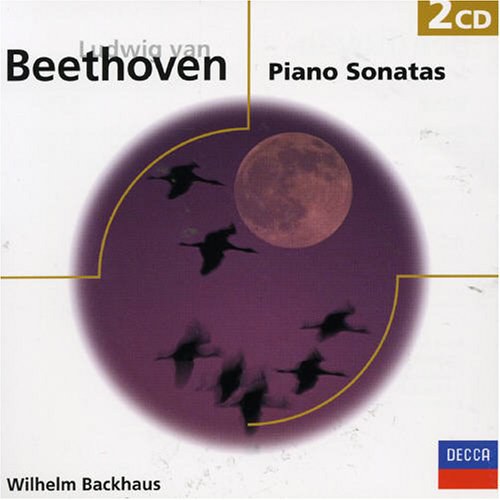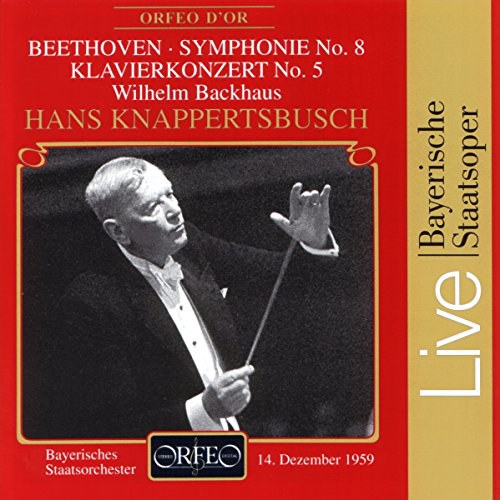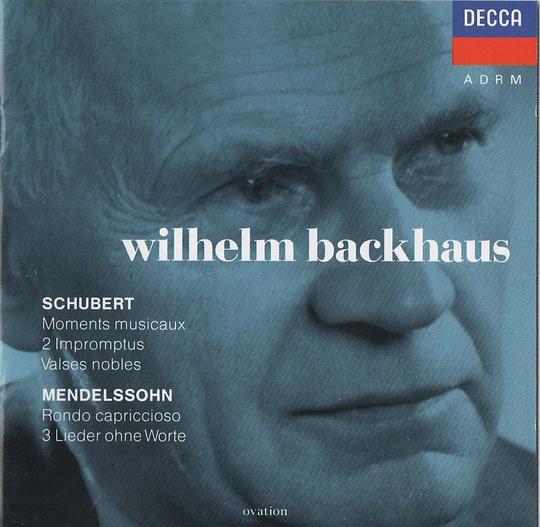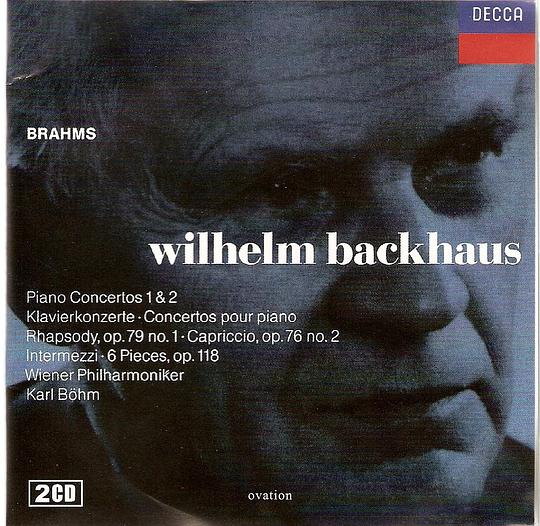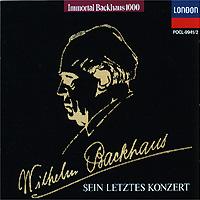R E V I E W S:
Gramophone
"Knappertsbusch had given up conducting at the State Opera and at the Salzburg Festival when Karajan was put in charge of both organisations in 1957, but he continued to conduct the VPO. In his mid-seventies at the time of these concerts, he remained indomitable and uncompromising. His rangy, slightly unkempt looks tell of his refusal to become a personality or indeed have much truck with audience applause: in every case here, after one bow, he leaves the soloists to take the limelight... He is at his most pawky in Leonore 3, the reading slow and undramatic. Once joined by the 78-year-old Backhaus, he is transformed. Backhaus gives an interpretation of the G major Concerto that is a distillation of all his years in the composer’s service. The reading is illumined by his grasp of colour, his delicate execution and his sheer joy in purveying the composer’s ideas as if he had alighted upon them for the first time. In the finale the years fall away as the two veterans make the music fleet and dance-like. Backhaus rightly receives a spontaneous ovation...Nilsson’s voice emerges out of the stillness of the Tristan Prelude in glorious form, steady and gleaming in Isolde’s transfiguration. Then at the height of her powers, she discloses her amazing facility as regards technique and a control of nuance, both virtually unheard-of today." - Alan Blyth, GRAMOPOPHONE

